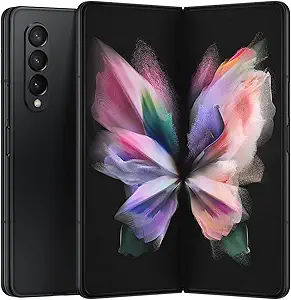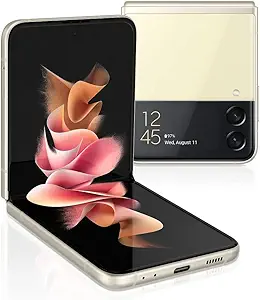In the dynamic world of smartphones, two brands stand out for their commitment to innovation, performance, and user satisfaction: Samsung and OnePlus. Both companies have established themselves as leaders in the industry, offering a diverse range of devices that cater to the needs and preferences of consumers worldwide. Samsung, with its Galaxy lineup, is renowned for its cutting-edge technology, sleek designs, and expansive ecosystem of services and accessories. OnePlus, on the other hand, has earned a loyal following among tech enthusiasts with its "Never Settle" mantra, delivering flagship-level performance, minimalist design, and exceptional value for money. Let's delve into the realms of Samsung and OnePlus smartphones, comparing their features, philosophies, and the experiences they offer to users.
Key Features Comparison
Product Selection
Samsung and OnePlus are both renowned for their extensive selection of smartphones, each offering a variety of models to cater to different user preferences and budgets. Samsung, a South Korean multinational conglomerate, has a wider product range with its flagship Galaxy S series, the Galaxy Note series, the more affordable A series, and the innovative Z series of foldable smartphones. The company is known for its cutting-edge technology, such as the Dynamic AMOLED 2X display in the Galaxy S21 Ultra and the Flex mode in the Galaxy Z Flip3. However, this wide range of options can sometimes be overwhelming for consumers, and some models, particularly the high-end ones, are quite expensive. On the other hand, OnePlus, a Chinese smartphone manufacturer, has a more streamlined product selection, focusing on delivering high-quality smartphones at competitive prices. Their product lineup includes the OnePlus 9 series, the Nord series, and the T series. OnePlus phones are praised for their fast and smooth performance, thanks to the OxygenOS and the latest Qualcomm Snapdragon processors. The OnePlus 9 Pro, for instance, features Hasselblad camera technology for improved photography. While OnePlus may not offer as many models as Samsung, their focus on quality over quantity has earned them a loyal customer base. However, unlike Samsung, OnePlus does not currently offer any foldable smartphones, which may limit their appeal to tech enthusiasts looking for the latest innovations.
Availability
Samsung smartphones are widely available globally, making them accessible to a broad range of consumers. The brand has a strong retail presence, with numerous physical stores and online platforms selling their devices. Samsung's extensive product line, from the high-end Galaxy S and Note series to the budget-friendly A series, caters to a variety of consumer needs and budgets. Furthermore, Samsung's latest technologies like 5G connectivity, high-resolution cameras, and foldable screens are readily available in most regions. However, the availability of specific models may vary depending on the region and the carrier. On the other hand, OnePlus smartphones, although popular, have a more limited availability. OnePlus primarily sells its devices online, and while they have started to expand into physical retail spaces, their presence is not as widespread as Samsung's. The availability of OnePlus smartphones can also be limited in certain regions. However, OnePlus phones are generally well-stocked online and they have a reputation for quick restocking times. OnePlus also offers a range of devices, from their flagship series to the more affordable Nord series, all equipped with the latest technologies like high refresh rate screens and fast charging. Compared to Samsung, OnePlus might not be as readily available, but they are making strides to increase their global presence.
Design/Look
Samsung and OnePlus smartphones are renowned for their design aesthetics, each having their unique appeal. Samsung smartphones, especially their flagship models such as the Samsung Galaxy S21, feature a sleek and modern design with a glass back and aluminum frame. The punch-hole display and the high screen-to-body ratio give it a premium look. The latest models also offer a variety of color options, allowing users to choose according to their personal preferences. However, some users have criticized Samsung smartphones for being too delicate and prone to fingerprints. On the other hand, OnePlus smartphones, like the OnePlus 9 Pro, are known for their minimalistic and ergonomic design. The brand often uses a combination of glass and metal in its design, which gives it a robust and high-quality feel. The placement of buttons and the alert slider is also well-thought-out, making it user-friendly. However, the size of OnePlus smartphones is often larger than average, which might not be comfortable for all users. Compared to Samsung, OnePlus offers fewer color options. Both brands have their unique design language, and the choice between the two often comes down to personal preference.
Affordability
Samsung and OnePlus smartphones are two popular brands that offer a wide range of models with varying price points. Samsung smartphones, particularly its flagship series like the Galaxy S21, are typically priced on the higher end of the spectrum. The latest Galaxy S21 Ultra, for instance, retails for around $1,199, which is reflective of its premium features such as the Dynamic AMOLED 2X display, 108MP camera, and the latest Snapdragon 888 processor. However, Samsung also offers budget-friendly options like the Galaxy A series, which starts at around $110, catering to a wider consumer base. On the other hand, OnePlus smartphones are known for their competitive pricing strategy. The brand offers high-end specifications at a relatively lower price point compared to other premium brands. For instance, the OnePlus 9 Pro, which also boasts of a 120Hz Fluid Display, Hasselblad camera, and Snapdragon 888 processor, is priced at around $969. This lower pricing, despite similar high-end specifications, gives OnePlus an edge over other brands including Samsung, particularly among price-sensitive consumers. However, it's worth noting that OnePlus doesn't offer as wide a range of prices as Samsung, with their cheapest model, the OnePlus Nord N100, starting at around $180.
Quality/Durability
Samsung smartphones are renowned for their quality and durability, with the latest models incorporating cutting-edge technology such as Gorilla Glass Victus and an aluminum frame for enhanced durability. The Samsung Galaxy S21 Ultra, for instance, features an IP68 rating for dust and water resistance, and the brand's flagship models are generally known for their robustness and longevity. However, the brand's lower-end models may not offer the same level of durability, and Samsung's reputation for quality has occasionally been marred by issues such as the Galaxy Note 7's battery problems. On the other hand, OnePlus smartphones are also recognized for their quality and durability. The OnePlus 9 Pro, for example, also features Gorilla Glass and an aluminum frame, indicating a commitment to durability. OnePlus devices are generally well-regarded for their build quality, with fewer reported instances of major hardware issues compared to other brands. However, OnePlus phones typically lack an official IP rating for water and dust resistance, which is a potential drawback for users who require a more rugged device. While OnePlus may not have the same brand recognition as Samsung, it is gaining a reputation for offering high-quality, durable smartphones at a more affordable price point.
Reputation
Samsung and OnePlus are two highly reputable smartphone brands that have carved out significant market shares in the global smartphone industry. Samsung, a South Korean company, is known for its innovative technology and high-quality products. The brand's reputation is built on its ability to consistently deliver top-notch devices that incorporate the latest technologies such as 5G, foldable screens, and high-resolution cameras. Samsung's flagship Galaxy series has garnered positive reviews and loyal customers worldwide, contributing to the brand's solid reputation. However, Samsung's reputation has faced challenges, such as the Galaxy Note 7's battery explosion incidents, which affected consumer trust. On the other hand, OnePlus, a Chinese smartphone manufacturer, has built its reputation on offering high-spec smartphones at a relatively lower price than its competitors. OnePlus's reputation is largely based on its value-for-money proposition, with the brand offering features like high refresh rate screens, fast charging, and robust processors that are typically found in more expensive devices. The brand's "Never Settle" motto resonates with consumers who seek premium features without the premium price tag. However, OnePlus has faced criticism regarding its software updates and customer service, which has somewhat affected its reputation. Compared to Samsung, OnePlus is a newer entrant in the market but has quickly gained a loyal customer base due to its aggressive pricing and feature-packed devices.
Customer Support & Warranty
Samsung smartphones are renowned for their robust customer support. The South Korean company has a global presence with service centers in numerous countries, providing both online and offline support. Samsung offers several support channels, including phone, email, live chat, social media, and community forums. They also provide a Samsung Members app that offers diagnostics and customer support. Samsung's customer support is also known for its prompt software updates and security patches, which are critical in today's digital age. However, Samsung's customer support has been criticized for its inconsistent quality of service across different regions. On the other hand, OnePlus, a Chinese smartphone manufacturer, has been making strides in improving its customer support. OnePlus has a smaller global footprint compared to Samsung, but they have been expanding their customer service network. They offer support via email, phone, live chat, and also have a community forum for peer-to-peer assistance. OnePlus also provides regular software updates and security patches, but users have reported delays in receiving these updates. One major advantage OnePlus has over Samsung is its extended warranty and insurance plans, which are competitively priced and offer comprehensive coverage. However, OnePlus has faced criticism for its relatively slower response times and lack of service centers in certain regions.
Related Video
Conclusion
In the dynamic landscape of smartphones, Samsung and OnePlus continue to set the bar for innovation, performance, and user satisfaction, each with its own unique strengths and appeal. Whether you're drawn to Samsung's refined design, versatile camera systems, and expansive ecosystem of services, or OnePlus's commitment to performance, value, and customization, there's a smartphone experience tailored to your preferences. As both brands continue to push the boundaries of technology and design, consumers can expect even more exciting developments and groundbreaking features in the future. Whether you choose Samsung or OnePlus, you're embarking on a journey filled with versatility, performance, and endless possibilities.





















